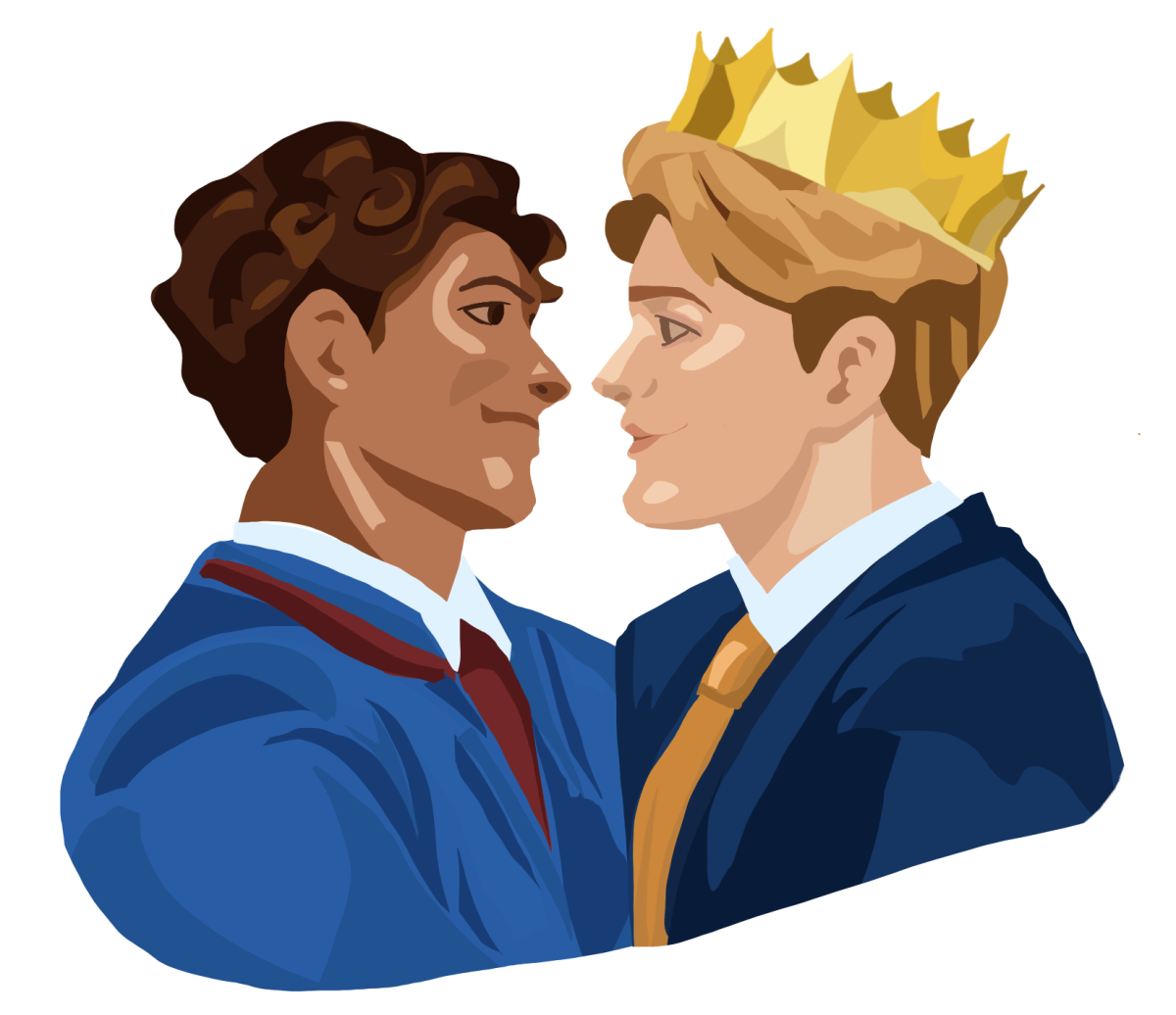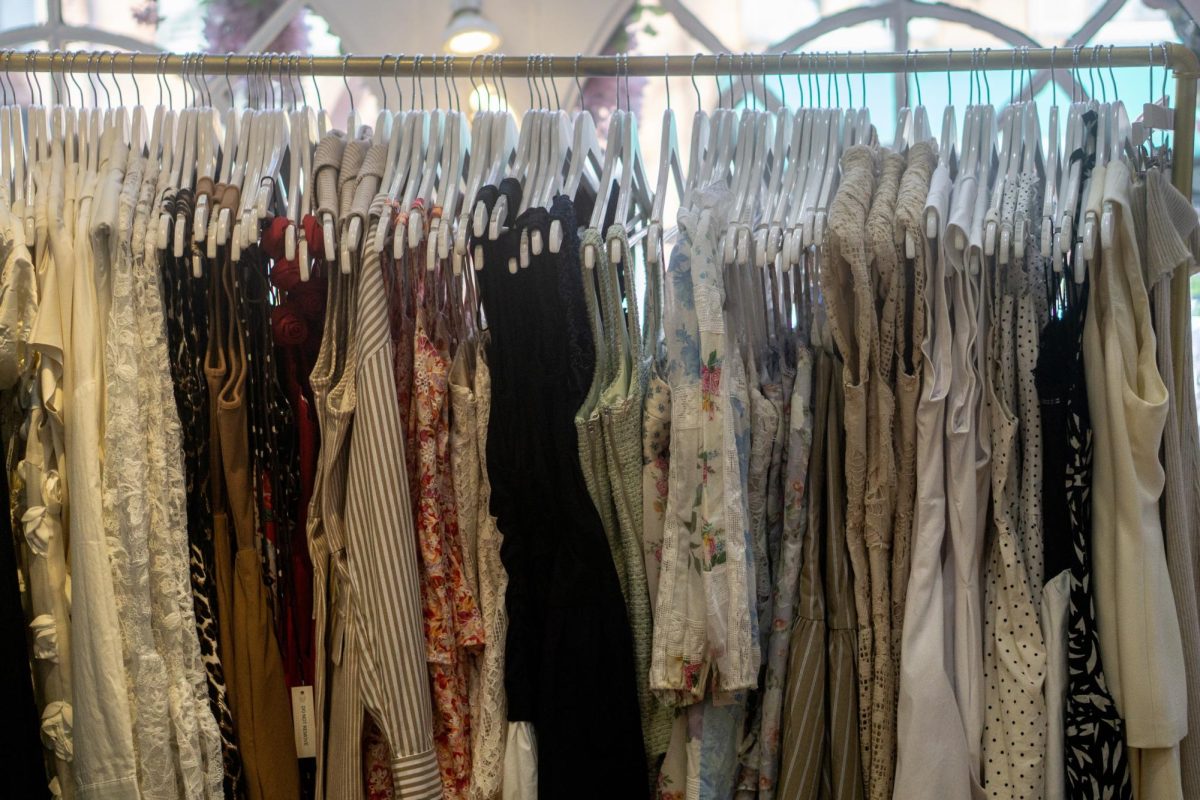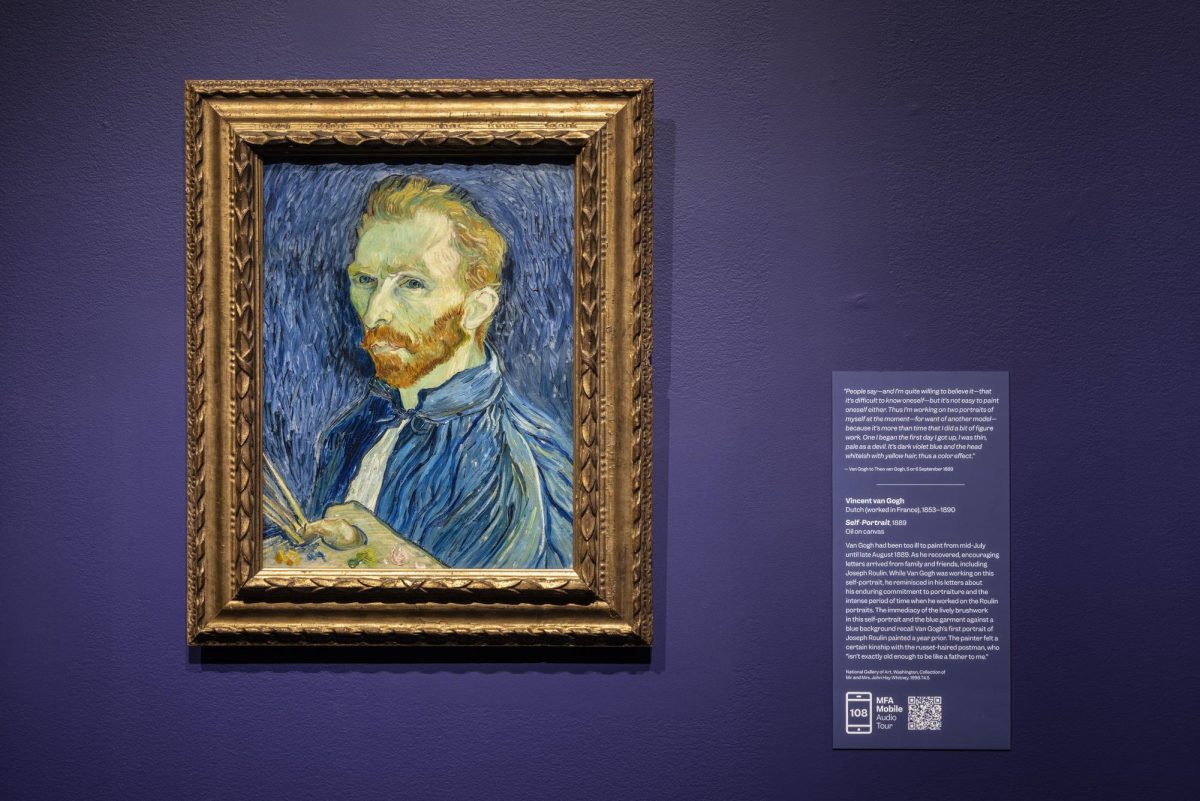Happy endings used to be a dime a dozen — even throughout the infamous recession of 2008, trashy vampire romance books lined the walls of Kmart and Walmart, providing middle-aged women a tall glass of water (in more ways than one) as a temporary oasis from the economic plight. In the bleak modernity of the present, both on the political front and in the romance novel industry, Casey McQuiston’s best-selling “Red, White & Royal Blue” provides a respite for young, queer Americans aging into one of the most tumultuous political landscapes in the last century, a warm hug wrapped into 448 pages of wit, charisma and feel-good teenage heart-eyes.
Armed with the classic yet quintessential enemies-to-lovers trope, “Red, White & Royal Blue,” whose film adaptation’s release last month has already garnered a mini-cult following, chronicles the developing romance between First Son Alex Claremont-Diaz and His Royal Highness Prince Henry of Wales, the second son of the British royal family. Alex, the charismatic president’s son whose wild popularity based on hard work and the chip on his shoulder doesn’t seem to measure up to the Prince’s royal allure, drinks too much at a stuffy royal wedding and the pair’s ensuing physical altercation makes global headlines. Aside from putting U.S.-England relations in jeopardy, a $75,000 wedding cake is another casualty, and the ensuing whirlwind public relations scheme is to march them around as supposed childhood best friends — for the sake of world peace, of course. Their forced proximity is vehemently despised by both characters until, suddenly, the sparks of hatred are fanned and nurtured into a fire of something much, much more.
The mutual antagonism the respective main characters share is reminiscent of the medieval fantasy novels that pervaded the 2010s, transforming the otherwise boring White House into the backdrop for a different kind of fantasy world. Corrupt presidents upholding centuries-long tradition of being old, white men melt away into strawberry blond single moms from Texas. Familial expectations waver in the face of love and acceptance. Evil is personified into a singular character who represents everything wrong with the fantasy United States that McQuiston has created and is seamlessly destroyed while the happy ending plays and the ending credits roll. Despite this clear-cut villainy, Senator Jeffrey Richards would fit seamlessly among political peers in the real world, with his homophobia and history of sexual predatory behavior (it is worthy to note that when these facts are exposed, his political career is effectively ended, which is still a far-reaching fantasy to those living in the real United States).
It’s not all sunshine and rainbows in McQuiston-land, where heteronormativity and homophobia (both internal and external) still rear their ugly head from time to time. From the instant Henry joins the ragtag neo-American royals club consisting of Alex, his older sister June and their best friend Nora (who also happens to be the granddaughter of the vice president), the press pairs the two siblings respectively with their opposite-sex counterparts, touting their imagined love as the hottest young celebrity gossip of the time. Alex’s burning internal monologue — grappling with the need to protect himself against his heart’s demand to tell the world that Henry is his, not his sister’s — reflects the daily struggle queer Americans face: protecting their personal safety or being their true selves. While Alex’s entire family is supportive, aside from President Claremont’s concerns over her polling numbers (President first, Mom second), Henry’s grandmother and older brother make their disapproval apparent. Despite these roadblocks to the final destination, the power of Henry’s mother’s love is enough to quell the protests of her mother and eldest son, marking yet another win in the comfort of this fantasy world.
McQuiston layers the raw authenticity of 20-something-year-olds grappling with love that feels like it could be the end of the world (and it very well could be) against a backdrop that so closely resembles our own, but with the necessary embellishments that just make it better. With the national spotlight fixated on Alex’s family as President Mom campaigns for re-election and Henry’s uptight royal family’s obsession with maintaining appearances, the underlying, unending fear of being exposed is the ugly undercurrent young, closeted individuals are intimately acquainted with. Yet, one thing is made doubly clear: Alex and Henry belong to a fantastical, whimsical world where two boys in love can go up against the world — and win.










